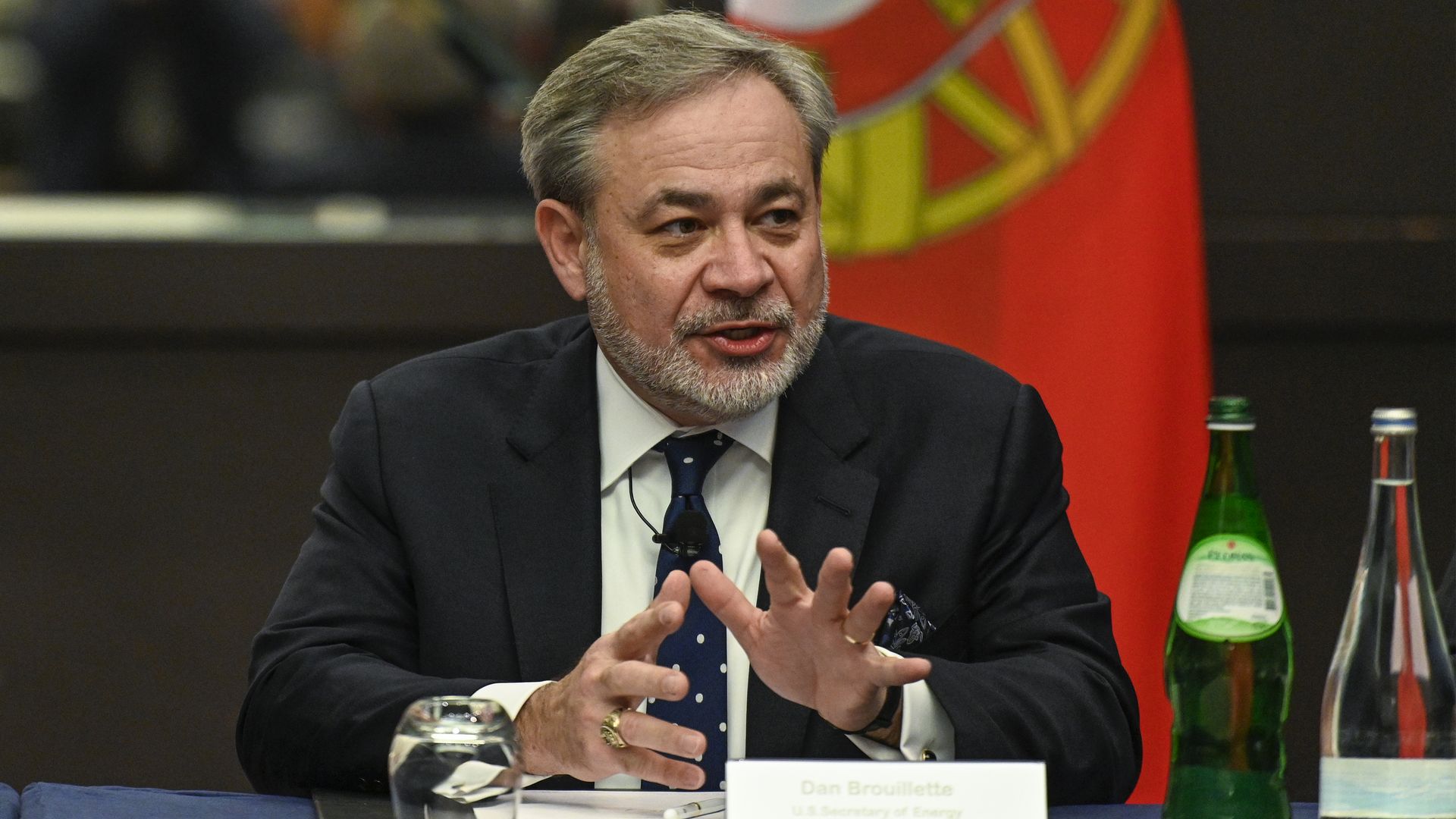Q&A with Trump's energy chief: Carbon emissions, oil and more
Add Axios as your preferred source to
see more of our stories on Google.

Energy Secretary Dan Brouillette during a February 13, 2020 in Lisbon, Portugal. Photo: Horacio Villalobos#Corbis/Corbis via Getty Images
President Trump’s top energy chief speaks with Axios about America's oil boom, carbon emissions and more as they relate to the coronavirus outbreak.
Why it matters: U.S. Energy Secretary Dan Brouillette has been at the center of Trump’s efforts to help the oil industry struggling amid the pandemic.
Here are highlights from the interview (not yet covered in other stories):
AXIOS: You've said recently that America will remain energy independent after this. But, isn’t the fact the U.S. had to get so involved in last month's oil-production deal led by OPEC a sign that we’re still heavily dependent upon the global market, and thus not energy independent, despite being the world’s biggest producer of oil?
Brouillette: I see it the other way around. Forty years away ago, we couldn’t get involved because we were wholly dependent upon those imports for our economy. The mere fact we are independent, we are in fact energy dominant, allows us to have those conversations.
There is a big difference between being dependent and exercising trade amongst nations and that’s what you see in the oil markets today. Refiners set up for heavy sour [oil] and they choose to be that way. We’re engaging in trade with countries. That’s just fundamental.
The American Petroleum Institute has opposed any government support, especially for oil producers struggling before the pandemic. Do you agree?
Brouillette: There were companies perhaps headed toward insolvency pre-pandemic and those were … decisions made by independent companies. If they borrowed too much money or borrowed at a bad rate, those decisions are going to have consequences, and in our view the government should not step in to change the ultimate outcome. There are going to be people who are going to go by the wayside. They were going to go by the wayside regardless of the pandemic. I don’t think it’s appropriate for the government to step in and save people from bad decisions.
What's your response to the huge decline in emissions the pandemic is causing as large swaths of the world economy shuts down?
Brouillette: The initial estimates at least numbers I’m looking at suggest carbon emissions have been reduced fairly dramatically because we’ve shut down the economy, but I don’t think we’ve actually reached the numbers that are in the Paris Agreement.
It just gives you a sense of, perhaps, how unrealistic some of the goals are. What more do we have to do? We’ve practically shut down the world economy and we still haven’t met the goals that were set in the Paris Agreement. What more can we do? If we’re going to be serious about this, we have to get more serious about things like nuclear energy.
Economists generally say, the lower oil prices go now, the higher they will later. Are you concerned about eventually high oil — and thus gasoline — prices?
Brouillette: I’m not worried about it. I think as demand comes back you’ll see production come back in the United States again.
Go deeper, with more parts of Wednesday's interview:
